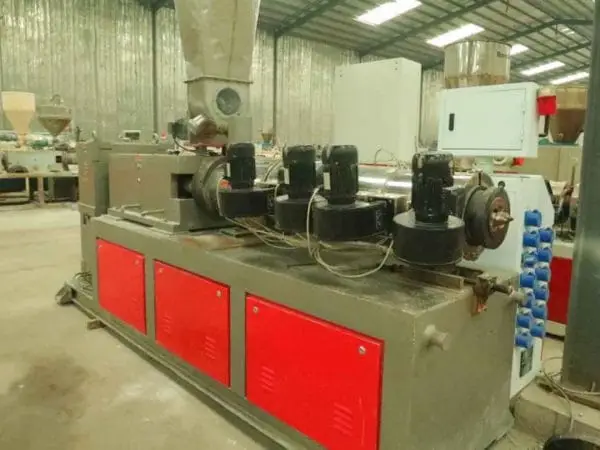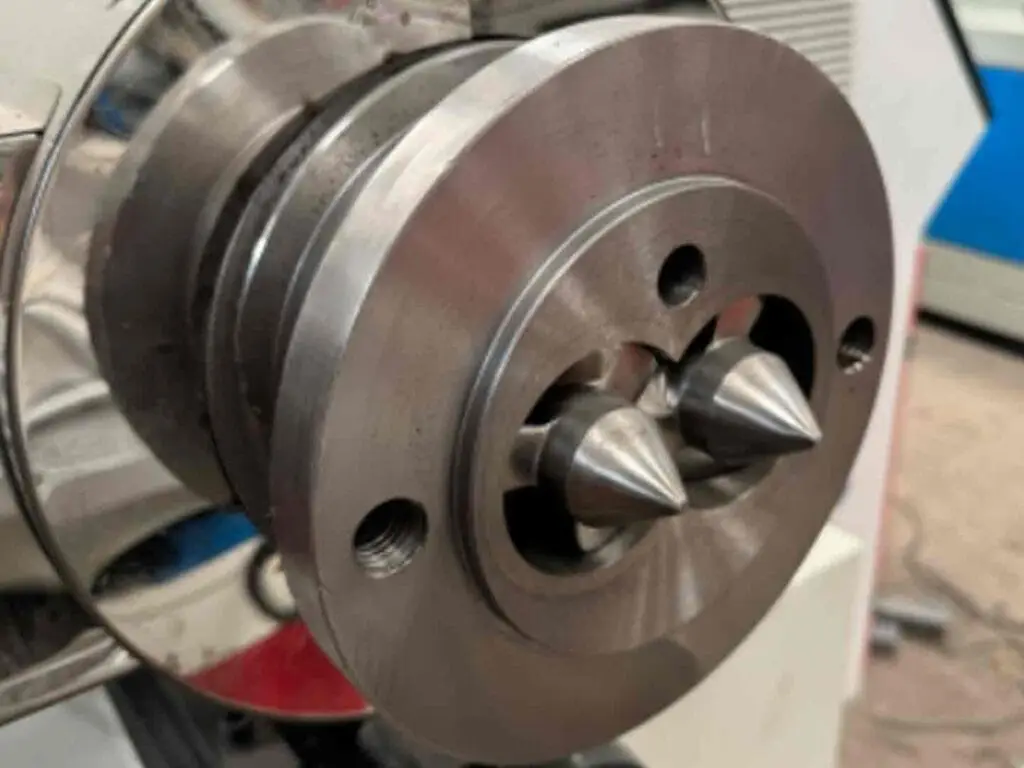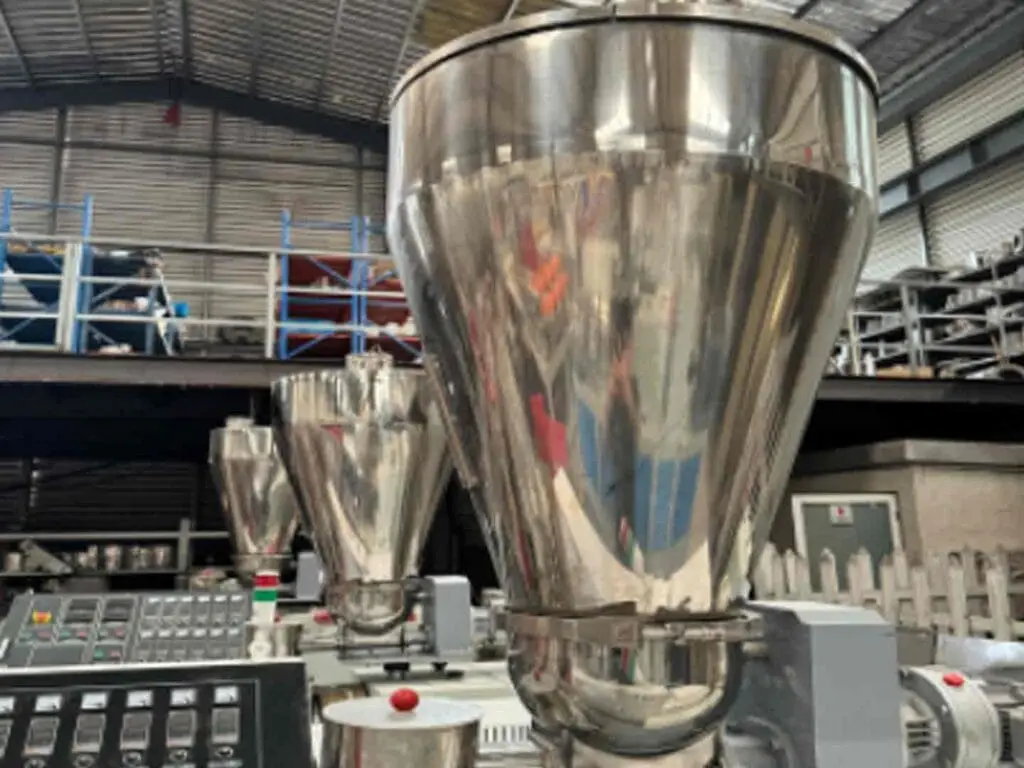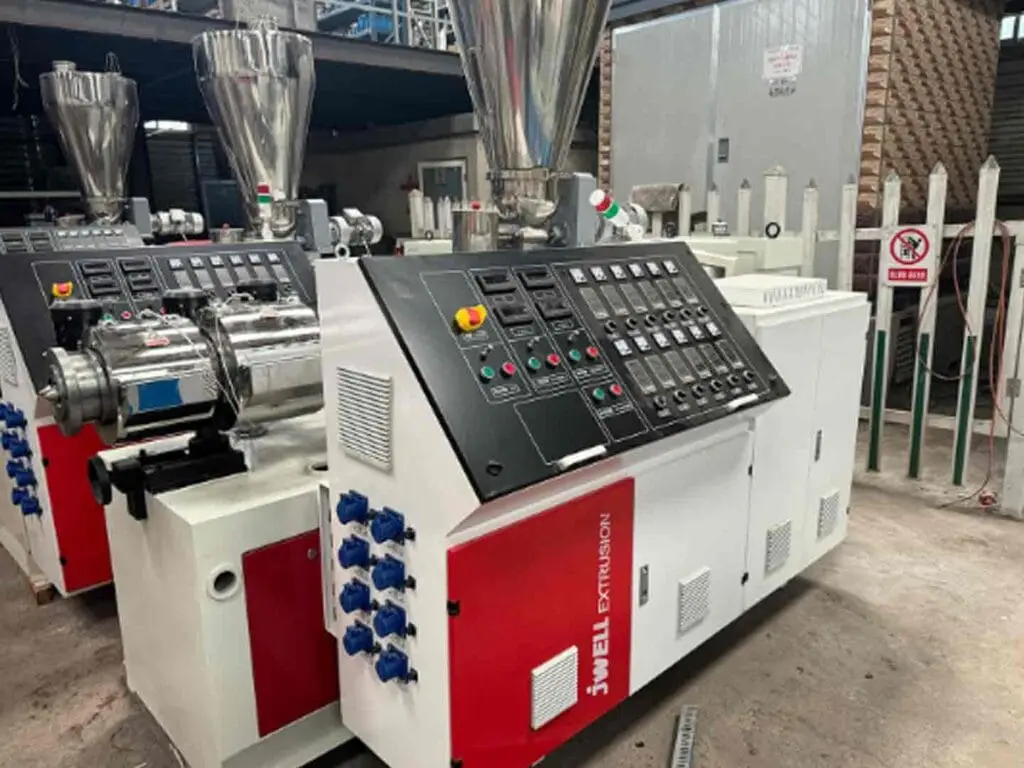Welcome to My Blog!
Before we dive into the content, I’d love for you to join me on my social media platforms where I share more insights, engage with the community, and post updates. Here’s how you can connect with me:
Facebook:https://www.facebook.com/profile.php?id=61567891941530
Now, let’s get started on our journey together. I hope you find the content here insightful, engaging, and valuable.
Caisu Machinery sells a variety of used plastic pipe production equipment. The products are of high quality and low price. Welcome to contact us for consultation and purchase. We will be happy to serve you.
Table of Contents
Introduction

Polymer extrusion is one of the most widely used techniques in the plastic processing industry. It plays a key role in transforming raw polymer materials into useful products, enabling industries ranging from packaging to automotive manufacturing. At the heart of this process lies the polymer extruder, a vital machine that shapes and forms plastic materials into various profiles, films, sheets, and more.
If you need more information, please feel free to contact us. Caisu sells a wide range of used polymer extrusion equipment at low prices and with good quality.
What Is a Polymer Extruder?
Overview of Polymer Extruders
A polymer extruder is a machine used in the plastic processing industry to melt, mix, and form polymer materials into continuous shapes such as films, sheets, pipes, and profiles. The polymer material is fed into the extruder, where it is subjected to heat and pressure, causing it to melt and become pliable. The material is then forced through a die to create the desired shape.
Extruders come in several configurations depending on the specific needs of the application, such as single-screw extruders, twin-screw extruders, and more. These machines are crucial in creating a variety of plastic products, from pipes to packaging films, used in numerous industries.
Key Components of a Polymer Extruder
Polymer extruders consist of several key components, including:
- Feeder: The hopper or feeder is responsible for introducing the polymer resin into the extruder.
- Screw (Single or Twin): The screw or screws are responsible for transporting the polymer material along the barrel while mixing and melting it.
- Barrel: The barrel houses the screw and provides the necessary heat to melt the polymer.
- Die: The die is the part of the extruder that shapes the molten polymer into its final product shape.
- Cooling System: After the polymer exits the die, it is cooled and solidified using air or water cooling systems.
Types of Polymer Extruders
Single-Screw Extruder
A single-screw extruder is one of the most common types of polymer extruders used in the industry. It consists of a single rotating screw inside a barrel. The material is fed into the extruder, and the screw moves it forward, where it is melted, mixed, and shaped. Single-screw extruders are simple, cost-effective, and suitable for various plastic products such as films, sheets, and pipes.
Twin-Screw Extruder
The twin-screw extruder has two intermeshing screws that rotate in the same or opposite directions. This design allows for better mixing, higher processing speeds, and more precise control over the material being extruded. Twin-screw extruders are often used for more complex materials and applications, such as compound mixing or producing specialized products like medical-grade plastics.
Other Specialized Extruders
There are other variations of polymer extruders designed for specific applications. These include co-rotating, counter-rotating twin-screw extruders and multi-screw extruders, each offering distinct advantages depending on the processing requirements.
Applications of Polymer Extruders in Plastic Processing


Polymer extruders are used in a wide range of applications in plastic processing. These machines enable the production of various plastic products, including:
- Films and Sheets: Polymer extruders are used to produce thin plastic films and sheets for packaging, automotive, and construction applications.
- Pipes and Tubes: Extruders are essential for producing plastic pipes and tubes used in plumbing, irrigation, and industrial systems.
- Profiles and Window Frames: Polymer extruders shape plastic profiles used for window frames, door profiles, and other construction materials.
- Wire Coating: Polymer extruders are also used to coat wires with plastic, which is common in the electrical and automotive industries.
- Plastic Bottles and Containers: Extruders are used to produce containers and bottles in the packaging industry.
Factors to Consider When Choosing a Polymer Extruder
Material Type
Different polymers have distinct processing requirements. It is important to consider the type of polymer being used and ensure that the extruder is compatible with it. Materials like polyethylene, PVC, polystyrene, and polypropylene may require different extrusion temperatures, speeds, and screw designs.
Extrusion Process and Output Requirements
The required output or throughput is a critical factor. Depending on the volume of production, you may need a polymer extruder capable of handling higher or lower output levels. Additionally, consider the complexity of the product being produced and whether a single-screw or twin-screw extruder is better suited to the application.
Energy Efficiency
Polymer extrusion processes can be energy-intensive, so it’s important to consider energy-efficient options. Machines that feature variable-speed drives, advanced temperature control systems, and optimized energy usage can help reduce operational costs.
Machine Maintenance and Support
Maintenance is a critical factor when selecting an extruder. Machines that require less frequent maintenance or feature automated self-diagnostics can save time and money in the long run. Additionally, it’s important to consider the availability of spare parts and support services.
Comparing Polymer Extruders: Key Specifications

When selecting a polymer extruder, it’s important to compare key specifications based on your specific needs. Below is a table summarizing some of the key aspects to consider when choosing a polymer extruder:
| Specification | Description |
|---|---|
| Screw Type | Single-screw or twin-screw; affects material mixing, speed, and versatility. |
| Barrel Length | Determines the residence time and processing efficiency of the material. |
| Extrusion Capacity | The maximum throughput (kg/hour) of the extruder; varies by material. |
| Temperature Range | The operational temperature range of the extruder, important for material compatibility. |
| Cooling System | Type of cooling system used (water, air, or other) to solidify the product. |
| Power Consumption | Energy required to operate the machine efficiently. |
| Die Type | Type of die used, which affects the shape and consistency of the final product. |
Note: The specifications will vary depending on the brand and model of the polymer extruder, as well as the specific requirements of your processing applications.
Conclusion
Polymer extruders play a crucial role in plastic processing, offering versatility, efficiency, and the ability to produce a wide range of products. Whether you are producing plastic sheets, pipes, or films, choosing the right polymer extruder can greatly impact your business’s productivity and the quality of your end products. Consider factors such as material compatibility, throughput requirements, energy efficiency, and machine maintenance when making your decision.
By understanding the different types of extruders and their applications, businesses can select the most suitable machine for their needs, ensuring high-quality production and long-term operational efficiency.
FAQ
What is the difference between a single-screw and a twin-screw extruder?
The primary difference lies in the number of screws used. A single-screw extruder uses one screw for transporting and processing the material, while a twin-screw extruder uses two intermeshing screws for better mixing, faster processing, and improved material handling.
How do polymer extruders impact the plastic industry?
Polymer extruders are fundamental to the plastic industry as they enable the continuous production of a wide range of plastic products. They streamline manufacturing processes and provide the versatility needed for producing different shapes and sizes of plastic items.
What are the common materials processed by polymer extruders?
Polymer extruders can process a variety of materials including polyethylene, PVC, polypropylene, ABS, and other thermoplastic polymers, depending on the desired product.
How can I improve the efficiency of my polymer extruder?
Improving efficiency involves using high-quality raw materials, maintaining optimal operating temperatures, minimizing downtime through proper maintenance, and ensuring energy-efficient practices.
Can polymer extruders be used for both small and large production runs?
Yes, polymer extruders are available in a variety of sizes and capacities, making them suitable for both small-scale and large-scale production. The choice of extruder depends on your production volume and the complexity of the product being made.





